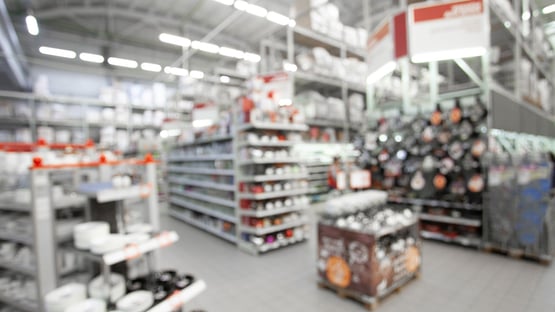The well-publicized increased adoption of e-commerce emphasizes the need for real-time data and actionable insights for the retailers. To keep pace with consumers who are shopping seamlessly across physical and digital channels, retailers need to be increasingly focused on using technology that narrows the gap between offline and online.
Urgent need for automation and digitalization
Many of the largest Tier 1 retail organizations around the world have embarked on digital journeys – with explicit targets for what they want to achieve during the coming years. The key driver is up-to-date data, anaytics and information that is used to drive improvements in both the efficiency of operations and shopper engagement.
Shoppers now have more flexibility and can chose different formats for both shopping and fulfilment. Some shoppers tend to go online in search of information, and then actually conclude the transaction in a physical store. Others might go to a store or a showroom to do research, and then they go online to make their purchase. Retailers today have to understand and enable this flexibility and seamless movement across channels.
Increases in store efficiency are key to increasing on-shelf availability, staff loyalty and promotional effectiveness all of which in turn result in higher customer and staff satisfaction as well as improving the organization’s bottom line.
To keep pace with consumers who are shopping seamlessly across physical and digital channels, retailers need to be increasingly focused on using technology that narrows the gap between offline and online."
By Helena Holmgren, President and CEO, Pricer

Digital in-store systems for efficient management
All stores today need an effective, flexible and real-time shelf edge platform. Operating as a key integrated part of the overall retail business infrastructure, this enables better and faster decision-making, more effective and timely inventory management and waste management.
In the past, electronic shelf labels (ESL) were all about replacing paper price labels with basically the digital version of the same thing. The reality today is very different. By supporting the managers with data, they get important real-time insights to enable more proactive decisions and task management. They enable the management team to do instant price updates, in a single store or in a whole chain with hundreds of stores, to counter competitors campaigns, or to lower price on food approaching the expiry date to minimize food waste. They also enable staff to track inventory or ensure planogram compliance.
Efficiency at the shelf edge drives a virtuous cycle
An effective shelf edge platform, incorporating ESLs and machine vision, integrated with an actionable system for real-time insights can save both money and valuable time. This then creates a virtuous cycle of providing information direct to shoppers as well as freeing up store associates to focus on further loyalty generation by serving customers directly.
This article was originally published on January 17, 2022 in the magazine Retail Today.



